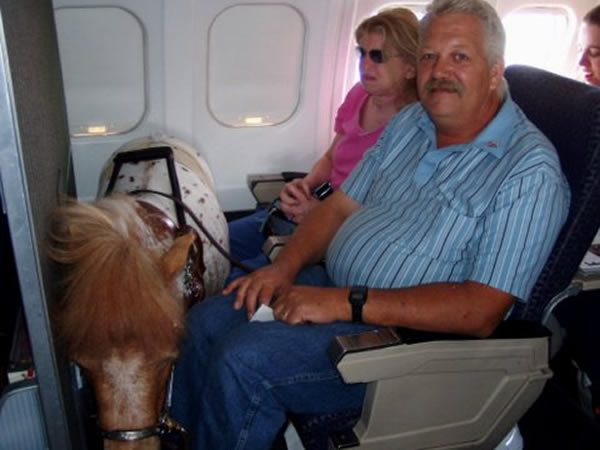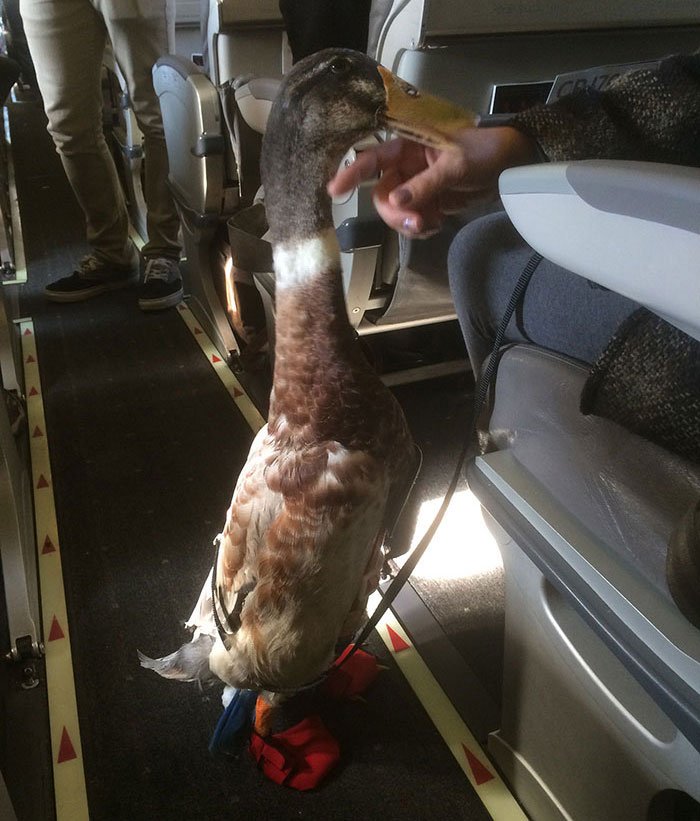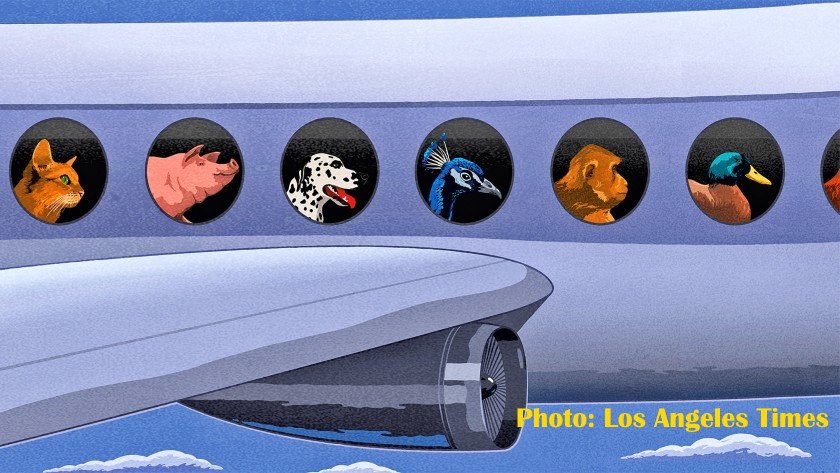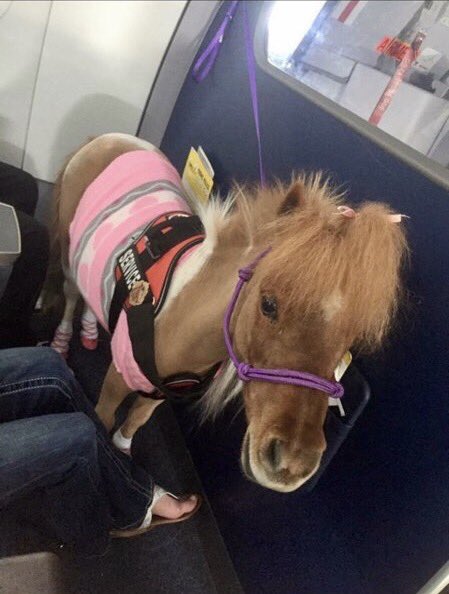Finally, the US Department of Transportation (DOT) took action in December 2020 to amend the Air Carrier Act and stop the carriage of Emotional Support Animals in aircraft cabin. It is now restricted to proven trained service dogs only which have been “individually trained to do work or perform tasks for the benefit of a person with a disability”. Under the new rules, animals such as pigs, ponies, turkeys, snakes and possums and other exotic animals will rightly be designated as pets and must be paid for and travel in the holds.
US airlines can now refuse animals.
Airlines now have the leverage to refuse to take such animals and it is not surprising that within weeks virtually every US airline immediately banned ESA’s. Alaskan airlines were the first quickly followed by United, American and Delta. United airlines have stated that “the change will further ensure a safe and accessible travel experience for our customers”. Well any sane person can understand that, but there has still been an outcry from individuals insisting they need a cockerel or a peacock or crocodile or whatever to steady their nerves.

I wrote an article a year ago on the farce of so-called Emotional Support animals in America varying from ponies to possums being allowed in the cabins of aircraft to ease the flying worries of their owners. In most instances it was more a case of attention seeking or a chance to outdo each other with photographs and video on social media. For some it was a chance for their pets to travel free. Agencies suddenly sprang up to provide dubious accreditation for the animals and also online sites offering fraudulent certificates.
U.K. airlines do not allow pets in cabin.
UK airlines sensibly have never allowed or been able to take alleged ESAs in the cabin as they have no legal status, but organisations have been established to lobby for such animals to be accepted as legitimate which would allow them into restaurants and other restricted areas like a guide dog. One is the UK Emotional Support Animal Registry established in 2017 who may now have to amend their plans. As in America there are apparently scams regarding registering animals in the U.K.
The number of ESA’s carried on aircraft in the USA jumped from 481,000 in 2016 to 751,000 in 2017 and a 14% increase in 2018. And there has been a sharp increase in “negative incidents” caused by animals and we can imagine what these were. Strangely many cabin crew appeared to welcome these animal passengers.
The airlines quite rightly have been arguing about the stupidity of the situation for a long time and pointed out all the health and safety issues involved to both cabin crew and other passengers, but it had fallen on mainly deaf ears until now. The Airlines for America lobbying organisation has been pushing for the change for over a year. The question is what took so long?


